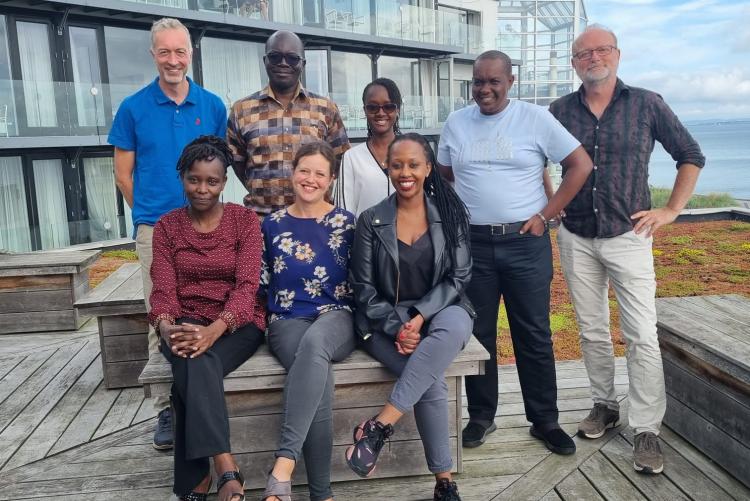In a remarkable cross-continental collaboration, a delegation from the University of Nairobi (UoN) embarked on a transformative ten-day journey to Copenhagen, Denmark, on July 29th, 2023. This ambitious endeavor marked the commencement of a dynamic partnership focusing on Multi-Disciplinary Environmental Maritime Governance (EMG-K) research. Spearheaded by the University of Nairobi's Center for Advanced Studies in Environmental Law and Policy (CASELAP) and the esteemed Copenhagen Business School (CBS), this initiative aims to reshape the landscape of maritime governance.
Generously funded by Danida, the EMG-K research project, spanning three years, immerses itself in a thorough exploration of Kenya's pivotal role in the Greenhouse Gas Emission (GHG) reduction negotiations within the International Maritime Organization (IMO). The project's comprehensive scope also extends to an in-depth analysis of the enforcement mechanisms governing both international and local shipping emission regulations within Kenya, operating on a national scale.
During their visit, the distinguished Kenyan delegation, comprised of Prof Collins Odote, Prof Richard Mulwa, Dr Elvin Nyukuri, and accomplished PhD candidates Clarice Wambua and Mwathi Kitonga, engaged in fruitful discussions with their Danish counterparts. The Danish team, consisting of Prof Rene Taudal Poulsen, Prof Hans Krause Hansen, and Dr Hannah Elliott from CBS, facilitated an environment of open dialogue and knowledge exchange, propelling the collective research efforts forward.
The collaborative discourse encompassed a wide array of facets within maritime policy-making at the IMO. This encompassed a comprehensive exploration of the revised 2023 GHG strategy for international shipping as outlined by the IMO. Additionally, the deliberations ventured into the intricacies of ongoing negotiations, delving into the ethnographic dimensions of the process. A significant focus was also placed on the practical implementation, compliance, and enforcement mechanisms delineated in Annex VI of the MARPOL Convention. Furthermore, the assembled scholars engaged in thoughtful deliberations concerning preliminary findings related to emission-reducing port practices in Kenya.
The rich tapestry of conversations woven during this visit has not only paved the way for continued research endeavors in both Kenya and Denmark but has also cast a clarifying light on the PhD research proposals forwarded by the participating students. The discussions culminated in a steadfast commitment to collaborative manuscript writing, with the intent of enriching the collective body of knowledge within this burgeoning field of study.
Among the memorable highlights of this exchange was the team's exploration of the Maritime Museum of Denmark, an inspiring foray into the historical underpinnings of the country's maritime legacy. As the research visit drew to a close, all participants stood united in their unwavering dedication to pushing the frontiers of comprehension within the realm of environmental maritime governance.
This landmark partnership between the University of Nairobi and the Copenhagen Business School stands as a beacon of academic cooperation, poised to drive meaningful change in the way we understand and approach environmental maritime governance.

